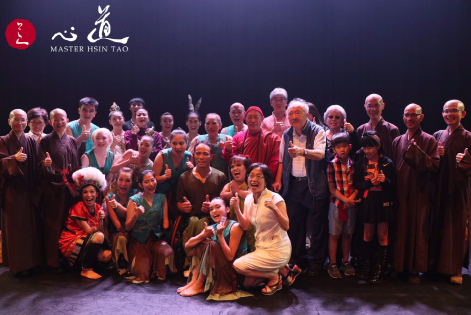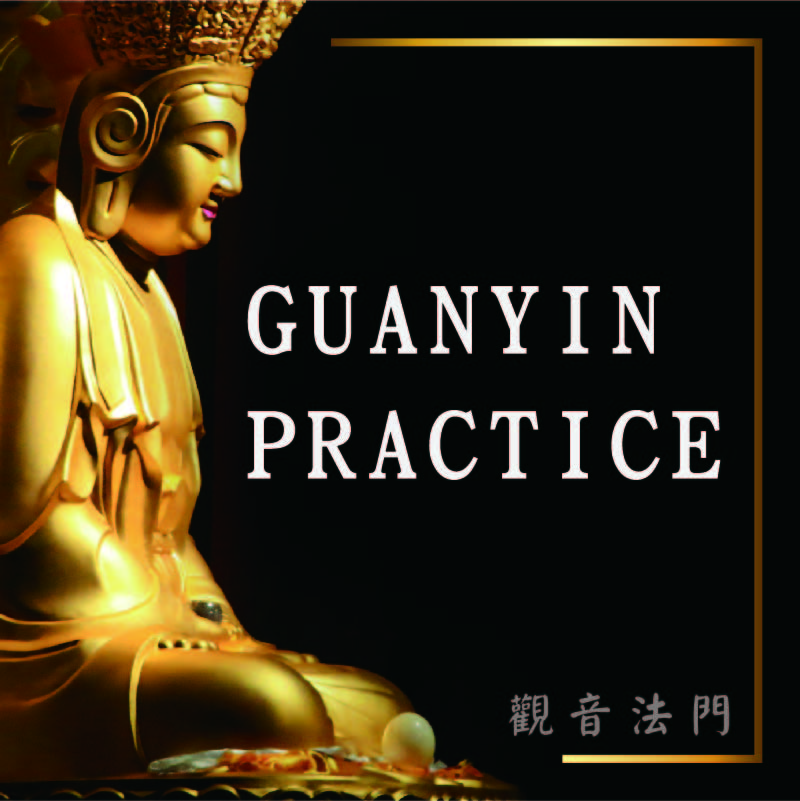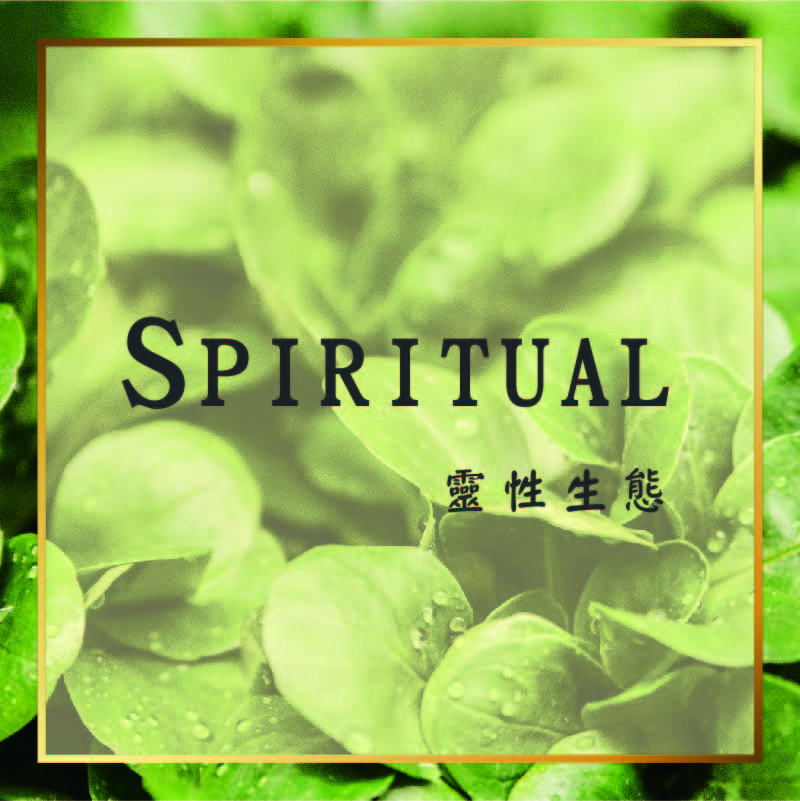
Monasticism – Aspiring a Life of Great Love
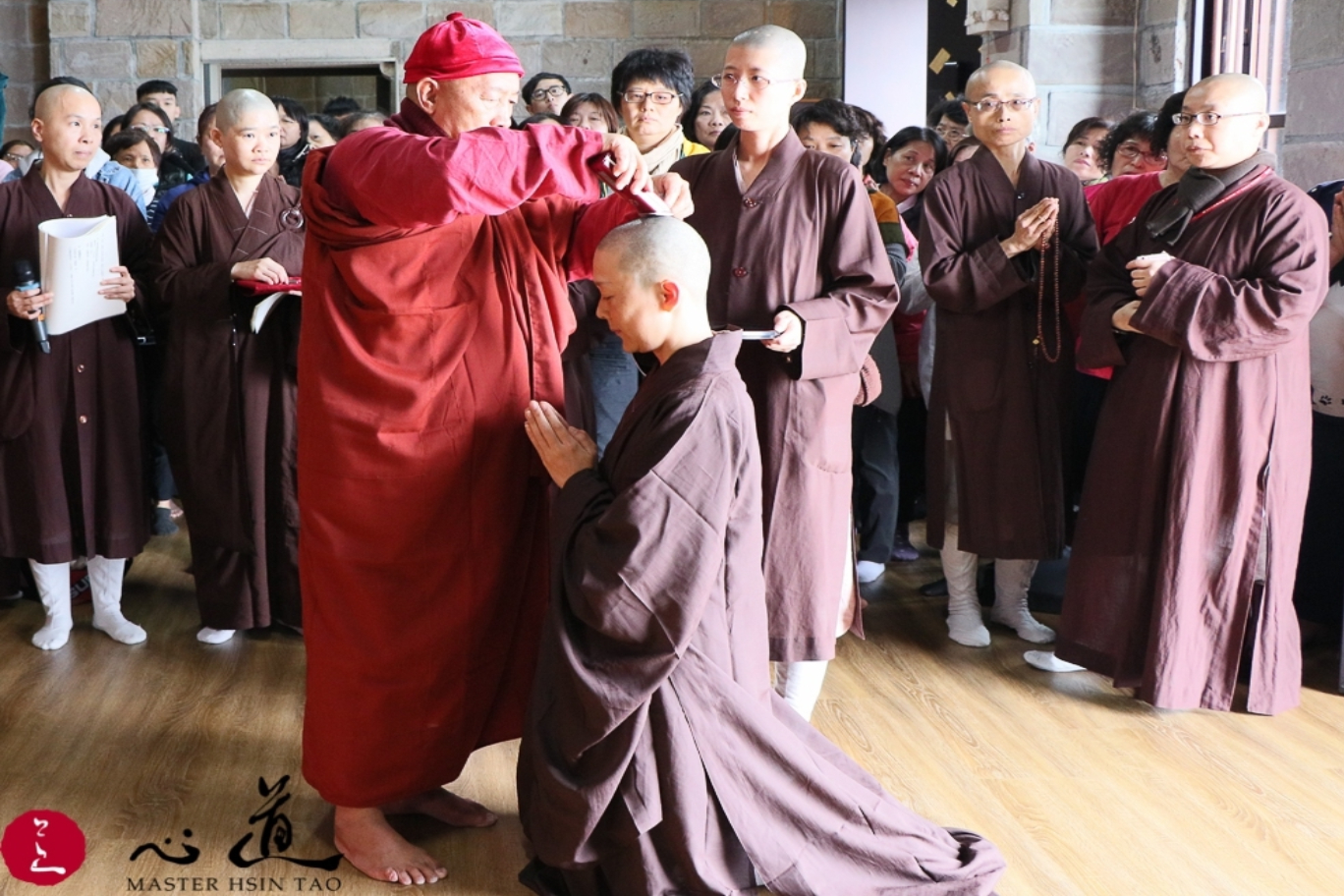 October 27, 2018, is the anniversary of Avalokiteshvara’s Ordination Day. Two lay students decided to take on monasticism on this remarkable day. Being a monastic is a personal aspiration to purify one’s bodily actions and mind. While a layperson practices the Five Precepts and Ten Virtues for Laity, monastic precepts are more vigorous. Monastic sanghas must observe ethical discipline vigilantly to set an example and to inspire others. Monasticism is all about the Three Higher Trainings of ethical disciplines, meditative stabilization, and wisdom.
October 27, 2018, is the anniversary of Avalokiteshvara’s Ordination Day. Two lay students decided to take on monasticism on this remarkable day. Being a monastic is a personal aspiration to purify one’s bodily actions and mind. While a layperson practices the Five Precepts and Ten Virtues for Laity, monastic precepts are more vigorous. Monastic sanghas must observe ethical discipline vigilantly to set an example and to inspire others. Monasticism is all about the Three Higher Trainings of ethical disciplines, meditative stabilization, and wisdom.
“Ethical discipline” sets the guideline for living. “Meditative stabilization” helps to tame and stabilize the mind. “Wisdom” is the clear awareness, examination with clarity. That way, we get to realize and be aware of the ease and stability of all dharmas. We can see the nature of all dharmas in impermanence, suffering, and emptiness. The nature is parted from birth, aging, illness, and death. – which is devoid of bias and attachments. This is nirvana, a state of unarising and unceasing.
Becoming a monastic is to rediscover our “original face”, the attainment of our Buddha nature. That way, we can continue to bring beneficence to sentient beings, serve sentient beings, and dedicate yourself to all. Yet, without the realization of emptiness, it is not possible to keep up the work of benefitting others.
During the hair-cutting ceremony, there are three cuts which signify three vows:
1. Vow to commit all virtues,
2. Vow to refrain from all non-virtues,
3. Vow to liberate all sentient beings.
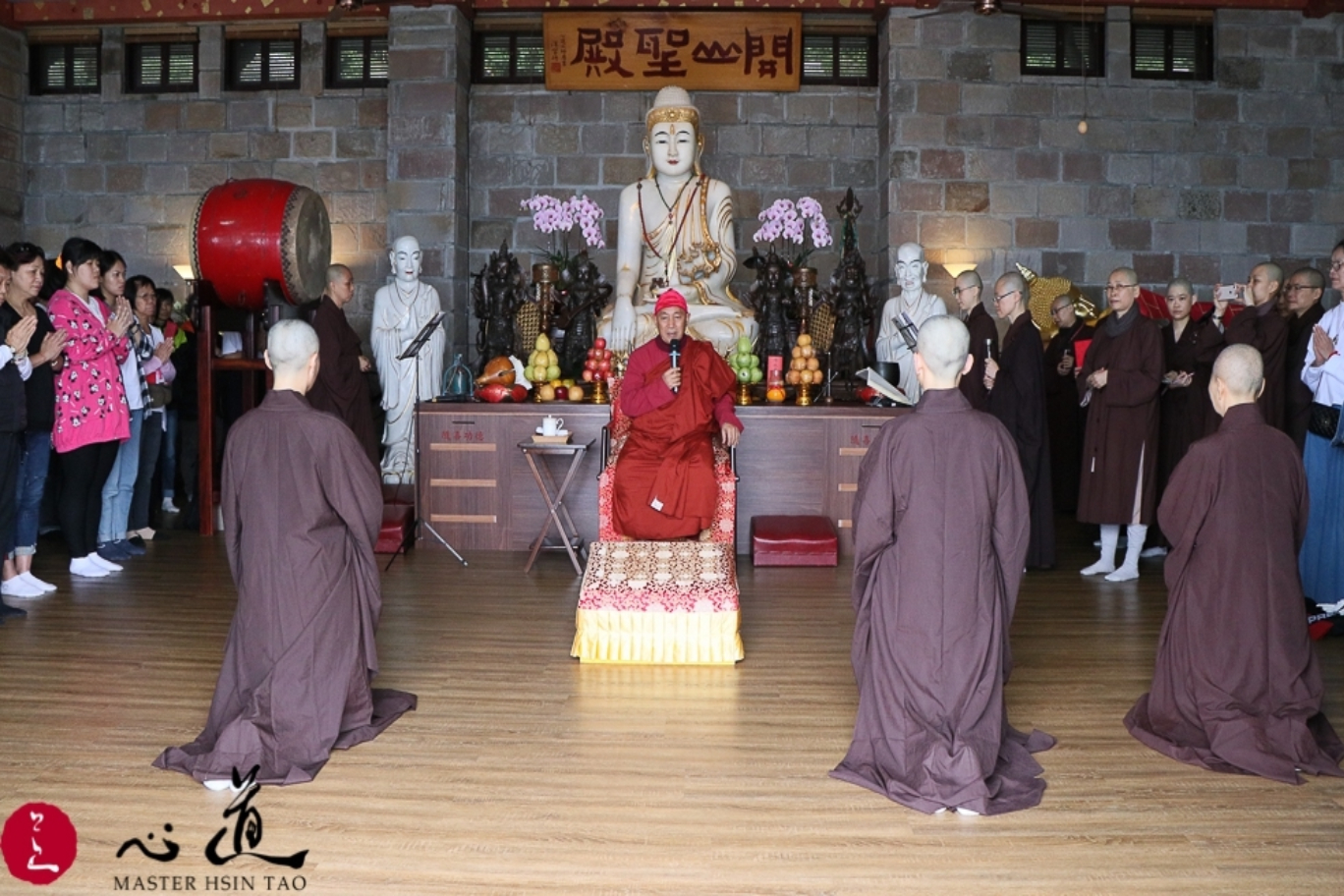 Monastics’ job is to market Buddhadharma to sentient beings. It is a medicine that brings happiness and freedom to oneself and others. Monasticism is to practice Dharma “professionally”. There are principles to follow without any personal inclination. It is to turn our selfishness to a love for beings and care for offering beneficence. Transform loving-kindness from small to great. This is what a monastic should do.
Monastics’ job is to market Buddhadharma to sentient beings. It is a medicine that brings happiness and freedom to oneself and others. Monasticism is to practice Dharma “professionally”. There are principles to follow without any personal inclination. It is to turn our selfishness to a love for beings and care for offering beneficence. Transform loving-kindness from small to great. This is what a monastic should do.
By leaving families and parents, monastics assume the mission to carry on and disseminate Buddhadharma. Be fully dedicated to the work of propagating Dharma and helping others. Let go of your personal affection but maintain compassion in the impermanance of emotions. Strive for Buddhahood and liberate sentient beings – it is a principle to follow for monastics.
Best wishes to the two new sangha members. Be happy to walk on this path. Dedicate your life selflessly to pass on Buddhadharma for the welfare of sentient beings.


